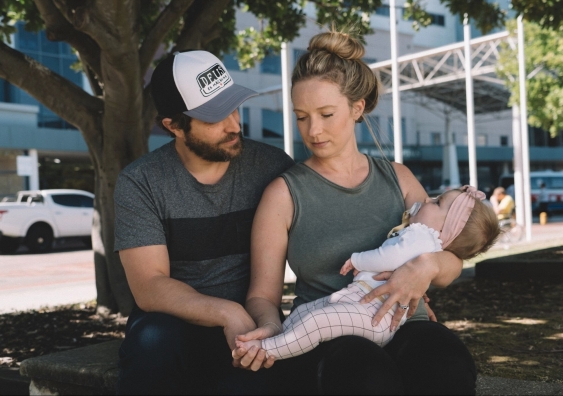Mackenzie’s Mission to help families access genetic testing
An unprecedented national project to assess whether thousands of couples are at risk of having children with severe genetic conditions was launched today.
An unprecedented national project to assess whether thousands of couples are at risk of having children with severe genetic conditions was launched today.

Lucy Carroll
UNSW External Communications
9385 8732, 0402 005 319
l.carroll@unsw.edu.au
UNSW researchers will play a leading role in a $20 million project to provide 10,000 couples with genetic testing to see if their babies are at risk of being born with life-threatening conditions.
The groundbreaking carrier screening project is the first under the federal government’s $500 million Australian Genomics Health Futures Mission, part of the Medical Research Future Fund.
Mackenzie’s Mission will focus on identifying couples who are carriers of faulty genes that could cause debilitating and often fatal conditions in their children. Researchers will begin recruiting couples towards the end of 2019.
The project is named after Rachael and Jonathan Casella’s daughter Mackenzie, who died in 2017 from the severe genetic condition spinal muscular atrophy (SMA), when she was seven months old.
Neither Rachael nor Jonathan have the condition, but both are carriers of SMA – something they discovered only after Mackenzie was born.
“After Mackenzie’s diagnosis we knew we couldn’t change our family’s future, but we could stop it from happening to other families,” Rachael said.
“To have this carrier screening pilot project named after our daughter gives us such pride: to know she will live on through this legacy means everything to us.”
Professor Edwin Kirk, a clinical geneticist, and Dr Michelle Farrer, a paediatric neurologist, both of UNSW Medicine and Sydney Children’s Hospital, will play a leading role in carrying out the project.
Dr Farrar, who treated Mackenzie, has been closely involved in the campaign for greater access to pre-pregnancy testing. In March, she and Professor Kirk accompanied Rachael and Jonny Casella to Canberra to meet Health Minister Greg Hunt.
'Reproductive genetic testing can help couples avoid ... tragedy and suffering. It provides reproductive options and offers them the chance of having a healthy baby.'
“Mackenzie’s parents were surprised to learn that there was a simple blood test available that could have alerted them to the fact that they were both carriers of the recessive gene for spinal muscular atrophy,” says Dr Farrar.
“After Mackenzie was diagnosed, they asked: ‘Why didn’t we know about this beforehand?’
“Losing a child to a devastating condition like spinal muscular atrophy is extremely painful and a huge burden. Reproductive genetic testing can help couples avoid this tragedy and suffering. It provides reproductive options and offers them the chance of having a healthy baby.
“It will be a legacy for generations,” she says.
Australian Genomics Lead Professor Kathryn North said she was delighted by the project as it would build on much of the work already being done by Australian Genomics.
“This is such an important project for the future health of our children, for the health of our society,” said Professor North, who is also Director of the Murdoch Children’s Research Institute.
“Prevention and early diagnosis are the keys to managing and treating medical conditions, and genomic testing enables us to do that. Genomics is transforming the way we approach health.”
Ten thousand volunteer couples who are planning on having a baby or are in the early stages of pregnancy will be screened for about 500 genetic conditions during the three-year study.
More than 45 people are steering the project led by UNSW’s Professor Edwin Kirk, Professor Nigel Laing from the University of Western Australia and Professor Martin Delatycki from the Murdoch Children’s Research Institute. The team includes researchers from a variety of fields, including clinicians, scientists, genetic counsellors and pathologists from across Australia.
Professor Kirk said the project aims to give people information and options, including better access to treatment and support.
“If we can offer a safe and simple test to couples thinking of having a baby, we can make a difference to the lives of thousands of future families,” he said.